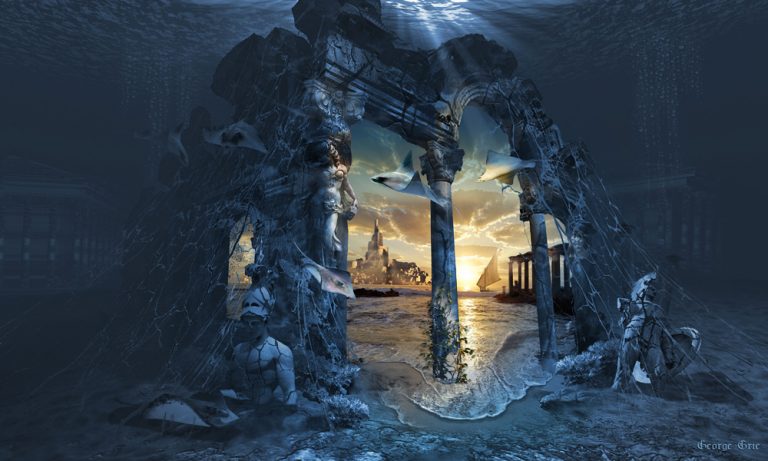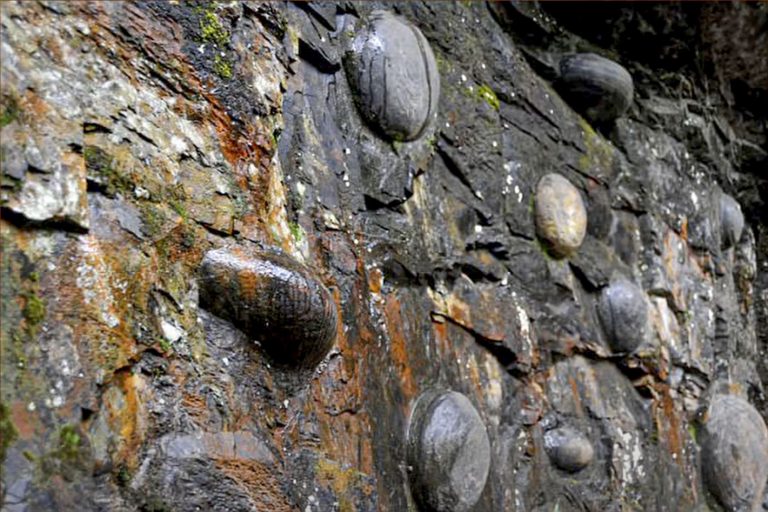The vast secrets of the universe will never be fully understood by humanity; but ancient myths and traditions may be able to offer insight into our history and destiny. The lost city of Atlantis and the Great Flood, a story found in many cultures yet with striking similarities; are two such myths. Whether they are merely myths or have some basis in reality may not be as important as the message we can take from them.
Atlantis is the subject of many legends. Plato’s Timaeus and Critias, written circa 330 BCE are the most authentic sources of information. Plato claims that the origins of the story of Atlantis can be traced back to the Egyptian priests of Sais, a city on the Nile that was long home to the Creation goddess Neith.
The story of Atlantis and its demise
The history of Atlantis and its inhabitants is replete with theories. In the Bible, it’s described as a very advanced city and the foundation of new trades, skills, and technologies. It could be that the pervasive retelling of that ancient history sparked the idea of Atlantis; however the Bible only mentions one city that sank under the sea. Some believed this to be Atlantis although at the time it was founded it was called Enoch.
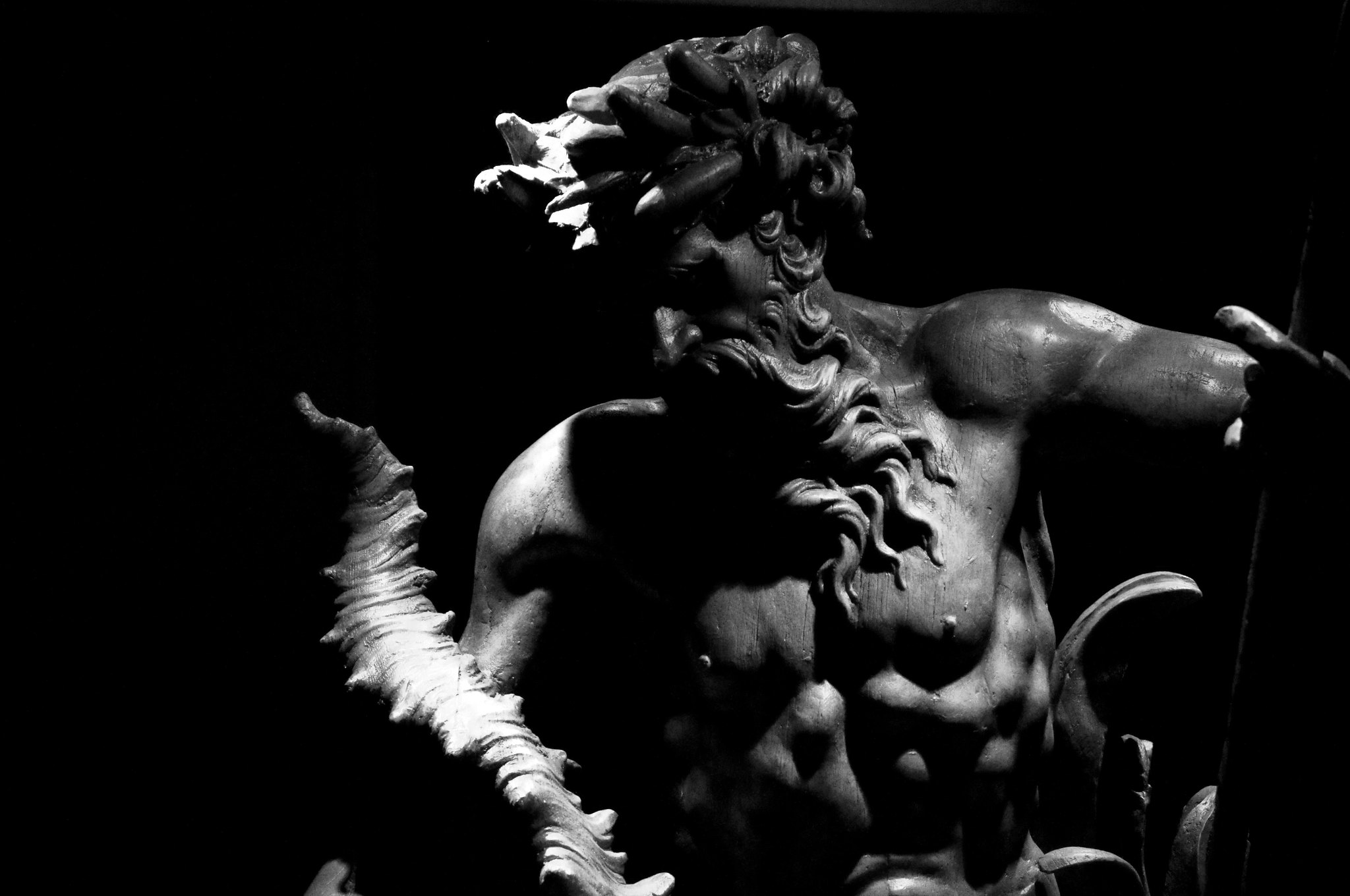
According to early Greek mythology, Atlantis’ main island was fashioned by the sea god Poseidon. Poseidon and Cleito, his mortal mate, had five sets of male twins, and Poseidon divided his land into ten parts, giving his first son, Atlas, the island of Atlantis to rule.
Atlantis thrived and was immensely prosperous. It attempted to conquer the whole Mediterranean region; but finally in an epic battle with the Athenians they were driven back to their homeland.
Success
You are now signed up for our newsletter
Success
Check your email to complete sign up
When the gods saw that the once-honorable race had become corrupt with greed, they caused the island to be destroyed. According to legend, the city was struck by a tremendous catastrophe the next day, which caused it to sink into the water and disappear.
Where is Atlantis now?
There was a long-held belief that Atlantis didn’t exist. The sunken city has never been found on the ocean floor despite many searches, so many believe the Atlantis story is simply a myth invented to illustrate Plato’s views on war and corruption.
In the 19th century, however, Heinrich Schliemann proved that Troy was not imagined by Homer; and those who believe in Atlantis keep looking for it, as well.
An Atlantic Ocean location certainly has its appeal as a namesake, but most of the historically proposed sites are in or near the Mediterranean Sea, with much speculation as to whether the island was based on Sardinia.
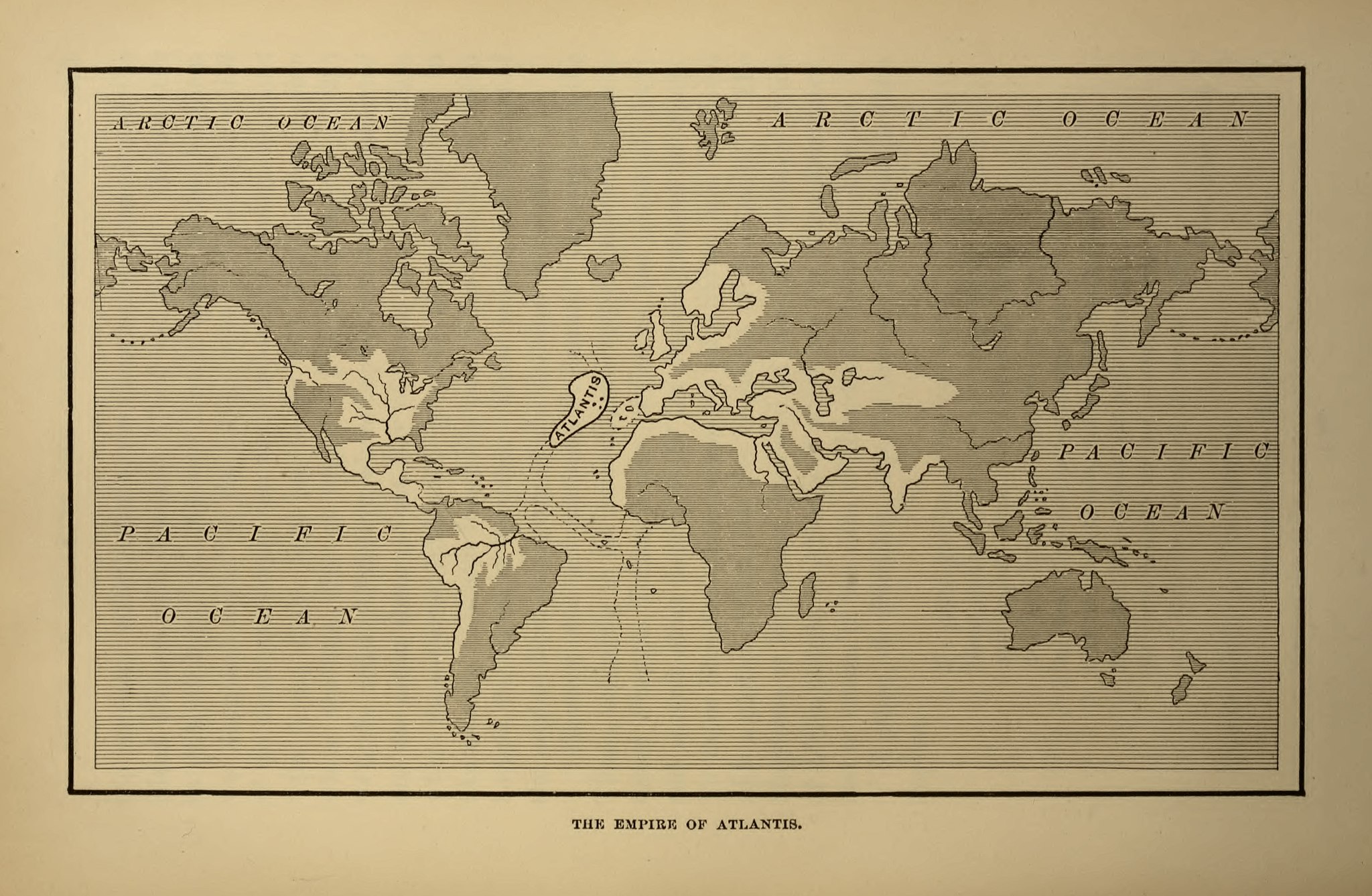
The mystery of Atlantis continues to puzzle us today. No one knows exactly when or where Atlantis vanished beneath the waves, if the legendary city even existed.
A legendary paradise destroyed
In his book Atlantis, Edgar Cayce provides a fascinating look at the lost city based on his clairvoyant visions. He depicted a potent crystal that powered aircraft capable of gliding across the skies, underwater, and even into space. Atlantean bodies were frequently rejuvenated, allowing them to live hundreds of years longer than us, and they had extraordinary skills, like weather control.
He also mentions that the original inhabitants of Atlantis are believed to be of extra-terrestrial origin who reached there about 50,000 years ago from the Lyrian star system. He tells how corruption caused this magnificent society to fall from grace and power; and describes how it devastated both itself and the continent in the process.
In Charles Kingsley’s children’s novel, The Water-Babies (1863), the legend of Atlantis is combined with the legend of St Brandan’s Fairy Isle, a “great land” which sank beneath the waves west of Ireland. Kingsley suggests that traces of Atlantis can still be found in the strange flowers of this land, such as the Cornish heath and Cornish moneywort, described as “fairy tokens left for wise men and good children.”
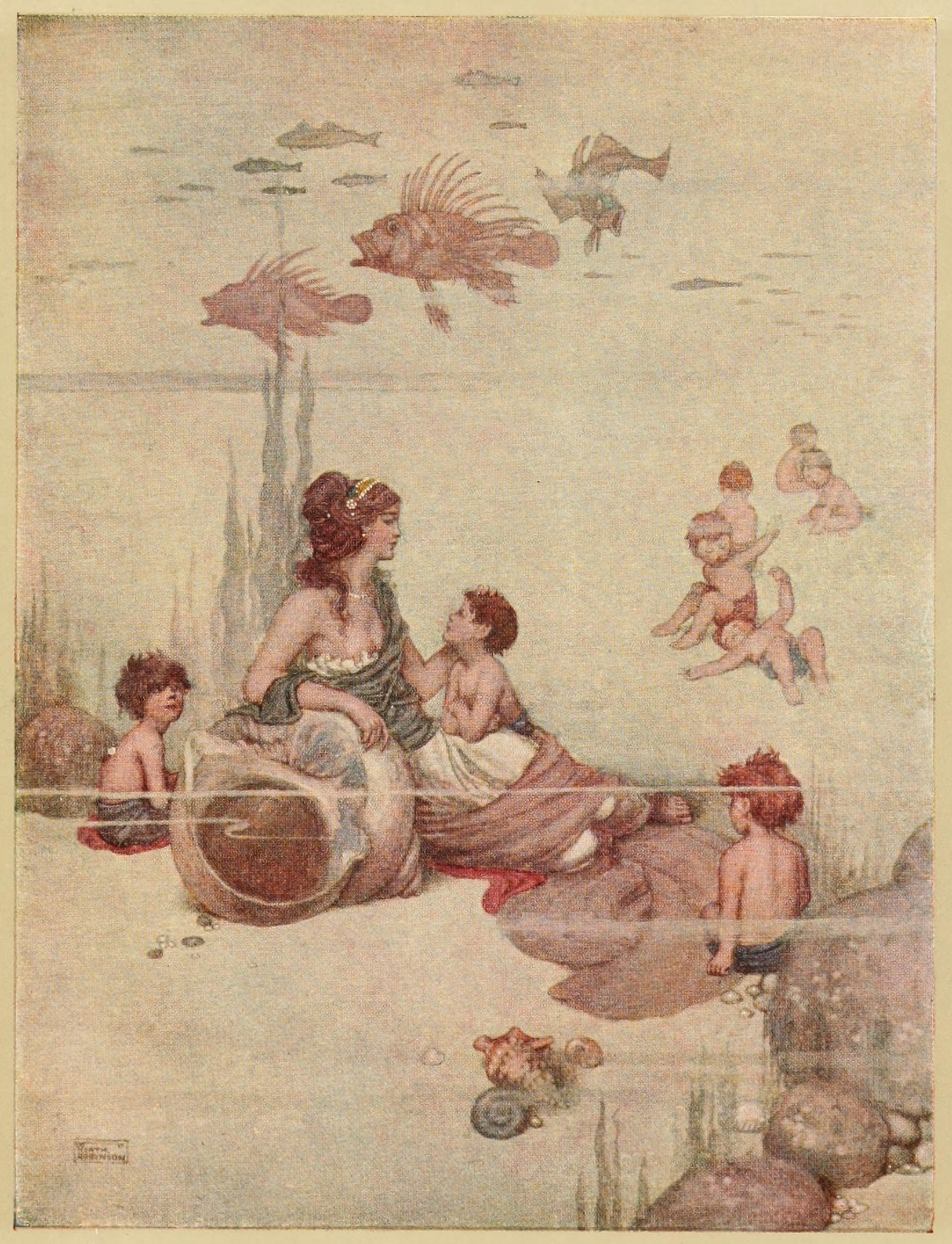
Various accounts of a ‘Great Flood’
So many flood myths exist, originating from the Inuits of Alaska to the Canarians of Ecuador, and various other countries in the Americas, Asia, Egypt, Europe, Australia; basically all over the world. It seems difficult to dismiss as fiction.
The Book of Giants dates from the third century BC and resembles The Book of Enoch. It begins with a description of the fall of the Watchers, the angels who fell and produced the angel-human hybrids known as Nephilim. The verse illustrates the extent of wickedness before the flood, justifying God’s wrath. In The Book of Enoch, Enoch predicts that Noah and his family would survive the Great Flood and preserve the Scriptures.
Many biblical scholars believe that the story of Noah’s Ark was inspired by mythical flood stories originating in nearby Mesopotamia, like The Epic of Gilgamesh. These ancient narratives had already become folklore centuries before Noah made an appearance in the Bible.
Biblical archaeologist Eric Cline compared the earlier Mesopotamian stories with those of Noah’s flood, which the gods sent to wipe out humans. “There’s one man they choose to survive. He builds a boat and brings on animals and lands on a mountain and lives happily ever after? I would argue that it’s the same story,” he said.
There is no consensus among scholars as to whether the biblical flood was larger or smaller than our modern disasters, like the 2004 tsunami that destroyed villages along the coasts of 11 countries surrounding the Indian Ocean; but they do believe that people’s experiences in ancient times were similar to ours.
READ ALSO:
- The Lost City of Cahokia
- Lost Civilizations – Industrialized Prehistoric Cultures
- Sacred Caves of Ajanta – Rich With Buddhist Artifacts
“If you witness a terrible natural disaster, yes, you want a scientific explanation of why this has happened,” said Karen Armstrong, author of “A History of God.” But you also need something that will help you to assuage your grief and anguish and rage. And it is here that myth helps us through that.”
The story of Noah may or may not be historically accurate, but Armstrong believes it is relevant to our present situation on Earth. Believe it or not, mythology can provide insight into how to live a better life, connect to a higher spiritual realm, and build stronger relationships.
Edgar Cayce believed the lost city would one day rise from the ocean, just like the sun does from the sea. On top of that, he said that Atlantean souls would return in order to usher in a new epoch of enlightened humanity.



